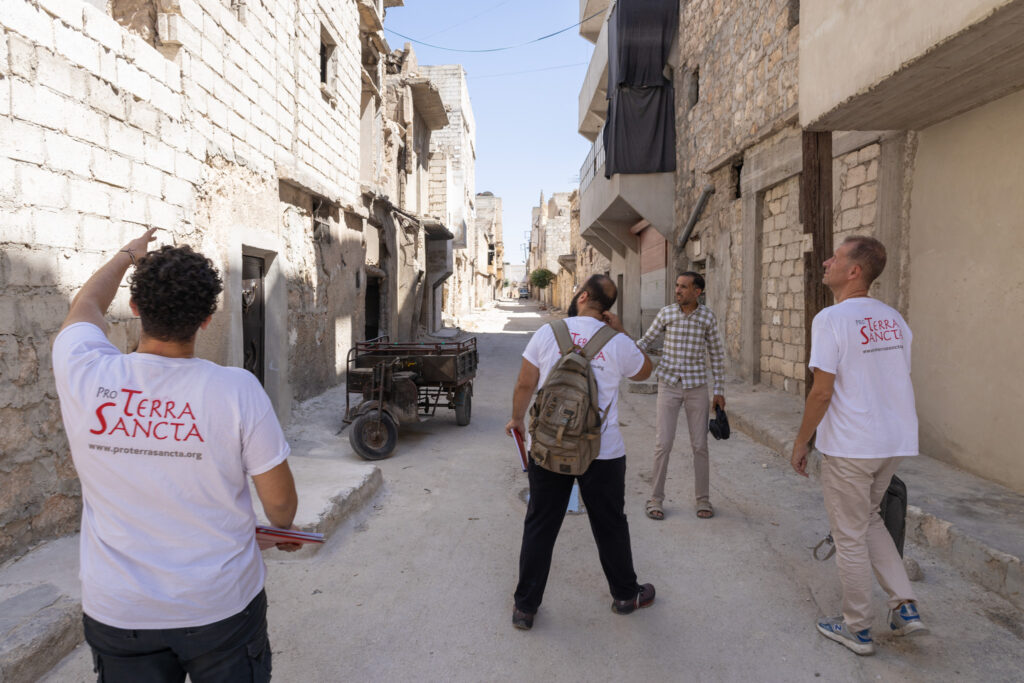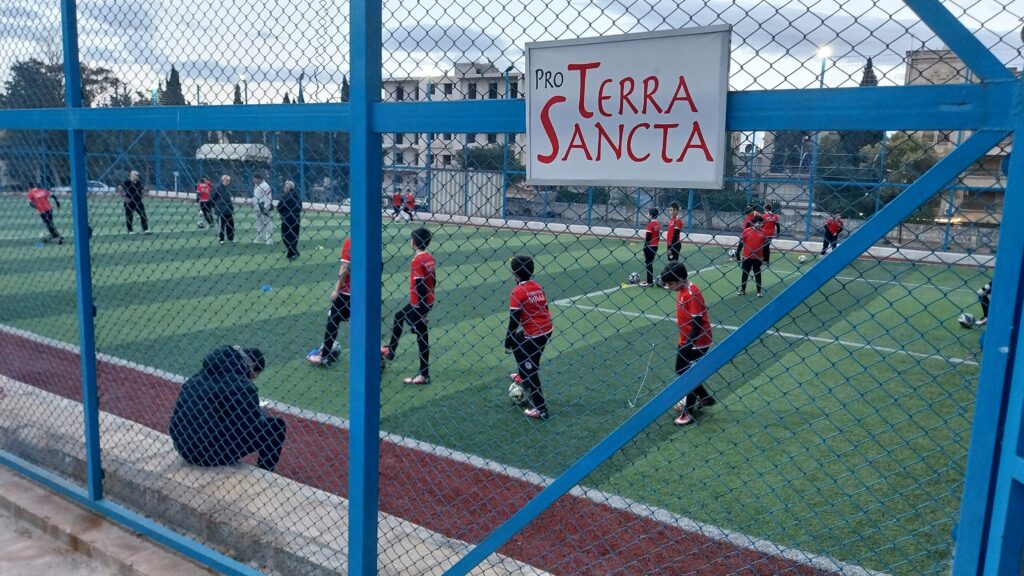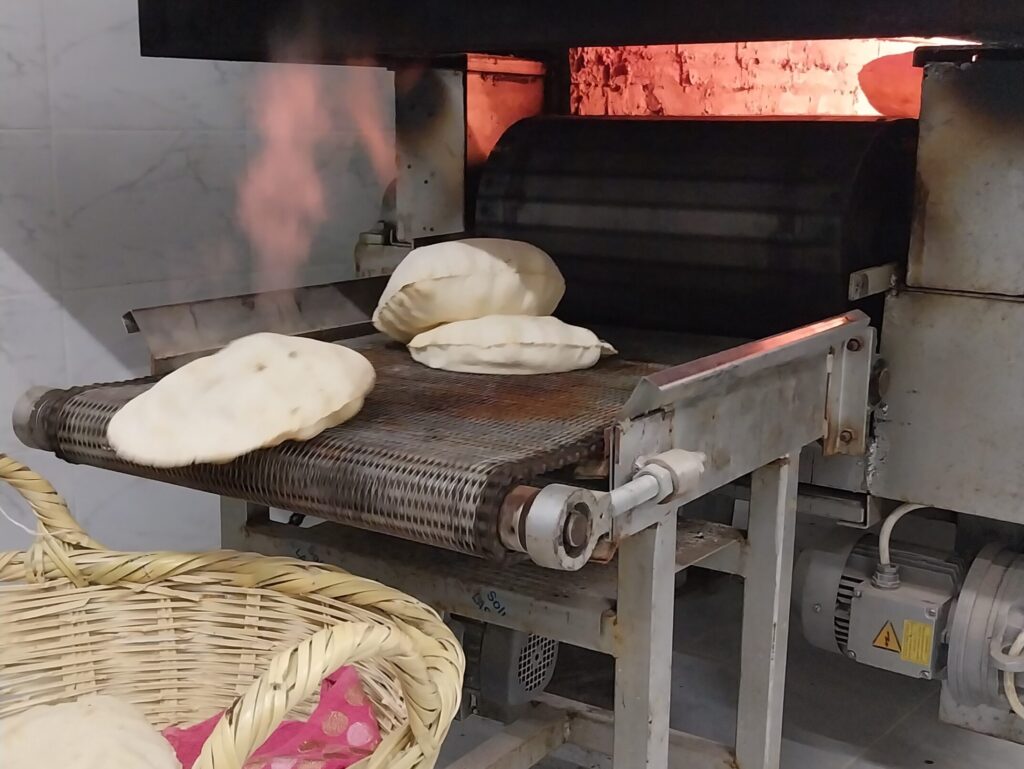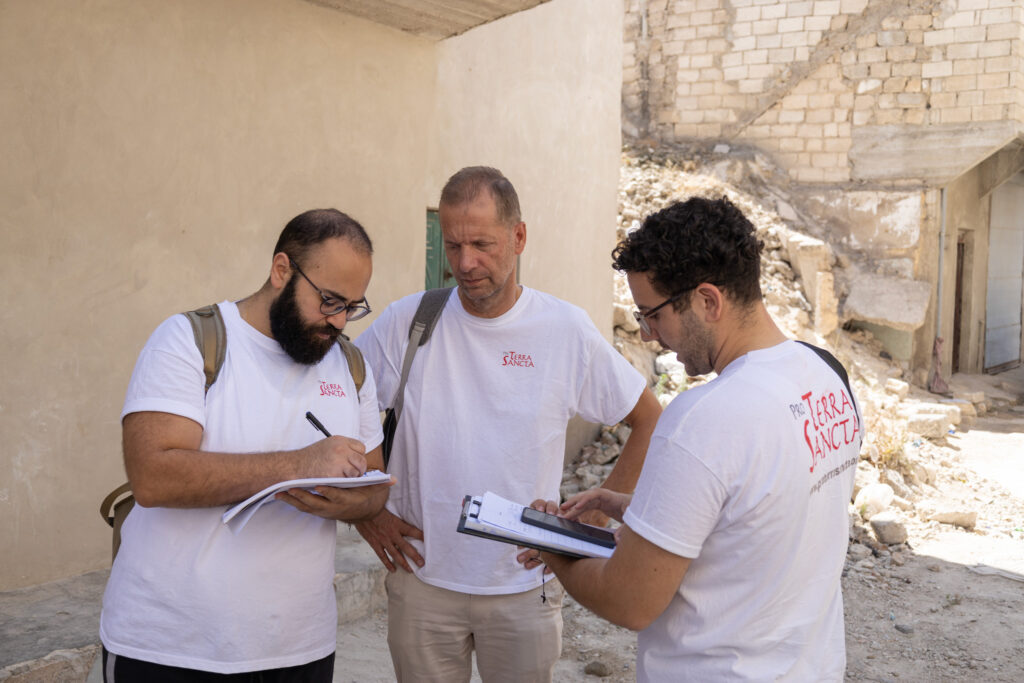Since a devastating earthquake hit parts of Turkey and Syria in February 2023, Cordaid has been collaborating with various partners in the region to provide emergency relief. Jean-Francois Thiry, the programme coordinator for Pro Terra Sancta, updates us on the latest developments in Aleppo and talks about what it means to support people who go through multiple crises. ‘If we change one person’s life, we give hope to everyone around them.’

The earthquake was one of the strongest ever recorded in the region. An estimated 14 million people have been affected and over 60,000 lives were lost. Immediately after this unprecedented disaster, monasteries in Aleppo and Latakia were turned into relief centres overnight, hosting thousands of people whose houses were damaged or destroyed.
‘People stayed there for quite a long time, until about three months after the earthquake’, Thiry says. ‘They were so afraid of another earthquake that they weren’t even thinking about returning home. I remember the story of a 5-year-old girl. She lived on the 5th floor of a tall building. During the earthquake, the apartment shook violently. Afterwards, her parents tried to soothe her by buying her a parrot. They named the bird Rock and said, “Rock will always protect you.” It was the only way to convince her to go back home.’
That’s heartbreaking.
‘The trauma is huge. I’ve met another girl who always keeps her shoes on in bed, so she’s prepared in case she needs to run out of the house again. Because that’s what people did. People ran into the streets, without their belongings, sometimes without anything at all.’
In what way do you support these young and very traumatised children?
‘We organise group sessions and offer an effective art therapy programme, with music and drawing. Drawing can tell you much about what a child is dealing with. When we detect serious issues, we send the child to a psychologist. We also teach them to express their emotions and anxiety through theatre and singing.
‘With Cordaid’s support, we repair 100 houses in East Aleppo and every day we prepare 1,300 hot meals for the city’s poorest people.’
‘For the older kids, we started a football academy where they receive training from a professional coach. We’ve had 270 applications. Playing sports can be very helpful in this situation. The players become friends and life starts to feel normal again. They dream about becoming Ronaldo or Messi. That’s exactly what they need.’

The northwestern part of Syria has suffered many years of violence. Now, an earthquake has destroyed much of what was left and the economy is at a low point. As humanitarians, where do you even begin in such a multi-faceted crisis?
‘First, we give people some understanding of the situation and help them return to normalcy. Psychosocial support is essential, although the support for the adult population is often also very practical. They need to know we are ready to support them with their daily necessities. With Cordaid’s support, we repair 100 houses in East Aleppo and every day we prepare 1,300 hot meals for the city’s poorest people. We also deliver meals to the homes of elderly people who cannot reach our facility. And we install solar panels. Electricity can be scarce here.’
Many women in Syria have lost their husbands in the war. What can you tell us about their situation?
‘We set up centres for psychosocial support, especially for widows. Life for women can be very challenging in this society, so we support them by raising awareness of their options. We help them find work and give them vocational training, like hairdressing or soap production, so they can make a living without depending on a husband.’
Is there any light at the end of the tunnel? When can humanitarian organisations in Syria move away from emergency support and start working on structural development?
‘Truth be told, I don’t know. So much of the infrastructure is still destroyed. When will the economy improve? We just don’t know. At this moment we literally need to keep thinking about how to give people their daily bread. So that’s what we do. With Cordaid’s support, we produce a lot of bread. In Syria, people eat bread with every meal. Unfortunately, there is a shortage of flour. The queues at the bakeries can be incredibly long. It could take hours to buy some bread. We decided to start producing it ourselves. Now we produce 2,000 kilos a week and in the next months we will double the production.’

You’ve mentioned Syria’s ailing economy. What can humanitarian organisations offer in that respect?
‘Concretely, we are working with Cordaid on a project called Work in Progress. After years of conflict, the COVID-19 pandemic and the earthquake, many small business owners lost all hope. People just wanted to get on with their lives, but the circumstances made it impossible. The project supports people who have a business idea and helps to restore the country’s economy. We received over 850 applications, and we are currently supporting 15 businesses. We will start working with 15 more businesses in September.’
‘We will not solve all the problems in Syria, but we can plant many seeds of hope.’
What kind of business ideas have you seen among the applications?
‘Quite some interesting ones. They also give an insight into society and what people want for their future. Half of the proposals were things like hair or nail salons. Although this will have a certain value for people, we are looking for initiatives that help society move forward. Other applications were very creative. There was one for recycling plastic bags, for example. You’ll see those things everywhere in the streets. It’s quite a problem. Recycling would help both the economy and the environment. There’s also a doctor who wants to start producing prosthetics. There are so many people here with serious physical injuries. This doctor detects a need, wants to help people and create a healthy business. I’m very proud of the project. It gives people a new direction.’
It takes a lot of dedication and perseverance to work in such challenging and complex circumstances. Do you ever suffer from the feeling it’s all a mere drop in the ocean?
‘Although we have a good variety of projects in different areas, the needs here remain high. As a humanitarian organisation, we can only do so much. We will not solve all the problems in Syria, but we can plant many seeds of hope. We can start a process of change. If we change one person’s life, we give hope to everyone around them.

‘When I had just arrived in Aleppo, I visited the emergency kitchen. An elderly person there asked me, “Are you coming to help us?”. I looked around and saw this huge crowd of people. I thought, there’s no way we can help everybody. I said, “I’m here to stand by you in these tough times”. That’s what’s so important. That people know others care for them. That they are not alone. We shouldn’t underestimate the power of solidarity.’
Cordaid’s support for Pro Terra Sancta’s earthquake response is financed by the Giro555 national fundraising campaign in the Netherlands.